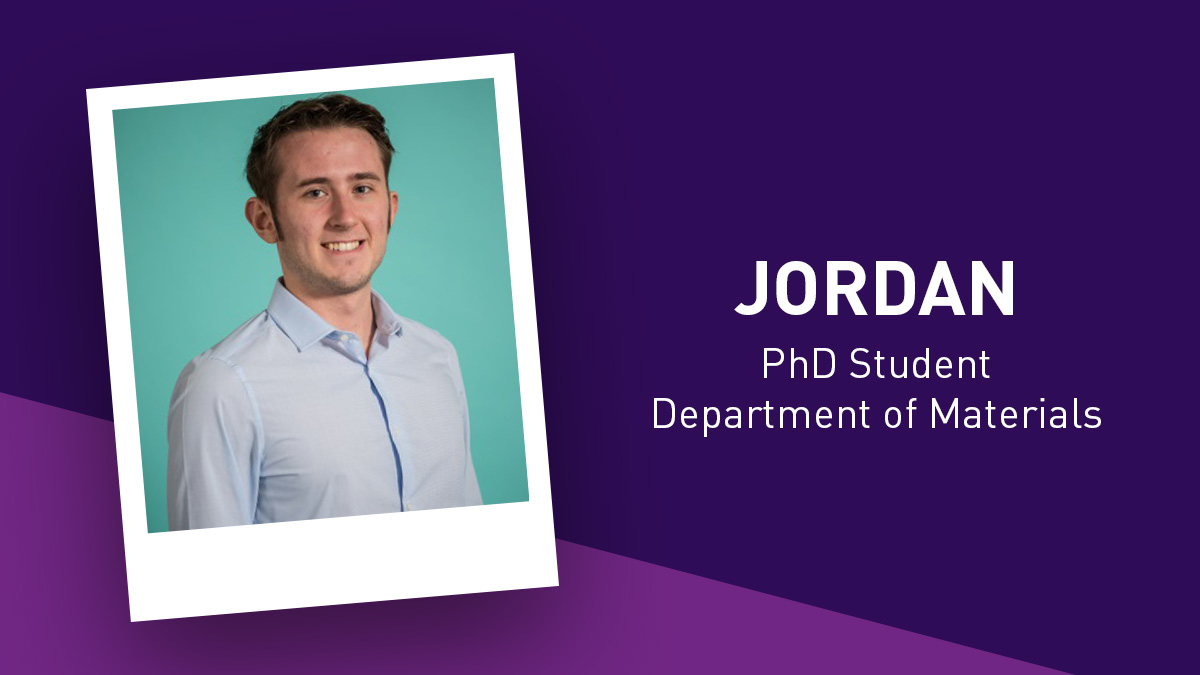Postgraduate research

Jordan is currently researching tissue engineering and regenerative medicine in the Department of Materials. Here, he tells you all about his PhD studies.
What is your PhD project about?
My PhD project is about creating new smart materials that can be used as cell scaffolds in neural tissue engineering. Specifically, creating magnetic hydrogels that mimic the material properties of human brain tissue, to house a complete neural circuit grown in 3D.
What were you doing before you started your PhD?
Before my PhD, I studied a Bsc in Biology at Sheffield Hallam University.
Why did you choose Loughborough?
Loughborough chose me in a way. Initially I was attracted to the project from a Biological perspective, and the prospect of working within a ‘mini-CDT’ (centre for doctoral training) aside from the main body of the CDT was quite exciting. Like a mini Avengers - drawing together specialist in different fields to complete a task. After my first interview, I found out the PhD had been slightly changed to accommodate for my previous experience. An offer I couldn’t refuse!
What do you enjoy the most about studying a PhD with us?
The facilities, flexibily, and staff make studying a PhD at Loughborough enjoyable. It’s hard to chose only one thing. Even the office space allows me to study my PhD project the way I want to, and I’m supported with the equipment and staff to do so.
Describe a day in the life of a PhD student:
First things first, check emails. Then check your calendar. Hopefully you’ve been keeping it up to date, because next you need to write a to-do list (as long as your arm) for the day ahead. Usually consisting of things you’ve been meaning to do for at least week, including the dreaded writing. Then it’s off to the labs, and I like to make sure I have all the items I’ll need to conduct my experiments ticked off a proverbial list, and out on the bench top beside me. Lunch and an afternoon ‘cuppa’ are essential traditions that are rarely missed. Heated discussions over science and Netflix ensue. Finish the day updating tomorrow's calendar!
Why did you decide to undertake a PhD in your area?
I need to know what things are made of, on every level: From what a hand is made up of, to the layers of the epidermis, to the cell types that make up those layers, the constituents of those cells, and the chemical make up of those constituents! Tissue engineering allows me to reverse engineer tissues like that, to create a physical object that may have clinical impacts in the future.
Where do you see yourself in 5 years?
I’d love to be in the position many of the lecturers here at Loughborough University are in. I want to primarily be able to able to teach a subject I am very passionate about to the next wave of students, but also to scratch those research ‘itches’ with my own independent research focus. I’d want to be encouraging students to be as passionate as I am, about a subject I’m just getting a foothold in.
What advice would you give to a future PhD student?
This isn’t undergraduate anymore: Treat the PhD as sensibly as you would a normal job and put the work in. You’ll get out of it what you put in. But remember you can only do your best. As long as you’re doing that, you’ll do great.
